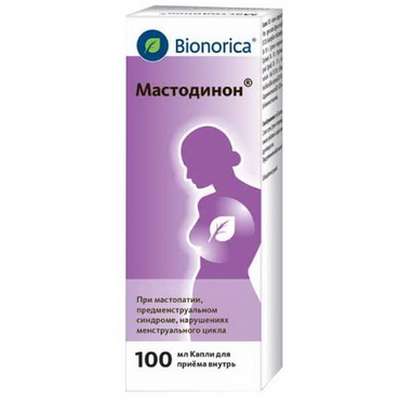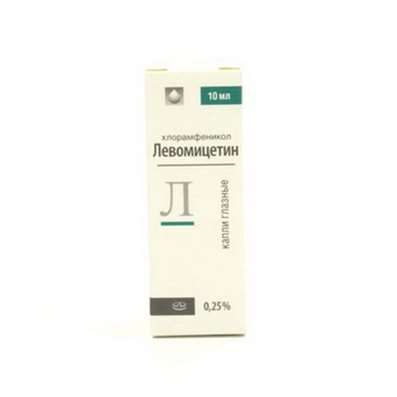FAQ: Gerontology
05 Nov 2016
7 facts about the science that studies the aging and fights with consenescence.
Biogerontology - this is a very broad area of knowledge that studies the aging process and mechanisms to deal with it. It includes many other branches of science, such as regenerative medicine, cell technology, the fight against the accumulation of extracellular debris. Biogerontology studying oxidative stress, various intracellular processes and the processes occurring at the level of the organism.

1. Aging, as such, I studied for a long time: a huge number of scientists and government officials tried to find a cure for old age. So far, it does not exist, and if someone told you that came up with such a medicine, it is likely you talking amateur. The aging process takes place on so many levels and is extremely complex. However, a serious anti-aging science in the recent past, there was a huge number of discoveries. We can either be the first generation that will live much longer than their ancestors, or the last, which will live relatively short lives.
2. The area that shows the greatest results and revolutionize the clinic - it is regenerative medicine. Already today it is possible to grow cells from the patient and transplanted organs. At the laboratory level, scientists have raised the heart, kidney, trachea, and many other organs. trachea transplant operations obtained in the laboratory by Paolo Macchiarini technology, were successfully carried out in Russia. The 2012 Nobel Prize in Physiology or Medicine was given for achievements in cellular technology to Dr. Yamanaka, who showed how to modify human cells to act like embryonic stem cells. Although his report was quite simple and effective, these cells are now used in therapy is impossible, but the industry is moving very fast as from a scientific point of view and from a commercial.
3. The potential of these cells showed Kristin Baldwin, professor of the University of Scripps, which used induced pluripotent stem cells in order to clone a mouse. She took her olfactory neuron, reprogram it using the protocol Yamanaka, and to inject these cells into mouse blastocysts - a fertilized egg that has already begun to divide. Thereafter blastocyst I was transplanted into a mouse, and it is after some time gave offspring. This shows that the induced pluripotent stem cells almost completely identical to conventional stem, and after how to develop effective methods for the preparation and quality control for these cells and methods for managing their further fate, they can be used, for example, for therapeutic cloning, which can hypothetically greatly delay the aging process. Such cells theoretically could be used to grow transplants, artificial organs can be used in the damaged tissues, for the treatment of wounds and various neurodegenerative diseases. It's all in the near future, and we will soon see the results.
4. Growing artificial organs has become a reality. In Russia in 2011, a few transplants farmed trachea patients were carried out, which would have died if it had not received such a procedure. This method is developed by Paolo Macchiarini, the famous Italian and Swedish scientists who here brought Mikhail Batin. If we eventually be able to transplant a kidney, liver or lungs, we greatly increase the life expectancy, as it will be limited to only the health of our nervous system. Her we can try to restore on a molecular level.
One of the major causes of aging - a repair failures in the mechanisms of damage that accumulates with aging. Russia has known genetics, such as Alex Moskalev which each year gives us new discoveries in the field of aging genetics and are promising mechanisms that can "turn on" and "off" in order to slow down this process. As well you can use Meldonium, Picamilon, Semax, Phenotropil to fight against ageing.
5. There are several diseases that resemble human accelerated aging. One of them - Hutchinson-Gilford syndrome. In this disease, the children live to about 15 years, and throughout their lives, we see the signs of aging phenotype: their hair falls out, there is a large number of wrinkles, osteoporosis, etc. The regulatory process in this syndrome studies in our laboratory at the Federal Research and Clinical Center of Pediatric Hematology, Oncology and Immunology. The syndrome is caused by a mutation in the LMNA gene, which accumulate mutations at a defective lamin A protein encoded by this gene and lining the interior of the nuclear membrane of the cell, leading to deformation of the membrane and cause many epigenetic processes. This is one of the most promising directions of the study of aging, because ordinary people defective lamin A accumulates too, and if we can more effectively wiping it from the cells or improve its quality control, we can theoretically slow down the process of their own aging.
In our laboratory, we conducted an analysis of regulatory networks to which the lamin A, and found some promising solutions, which can be used in order to be able to do targeted regulation of a variety of low molecular weight compounds. We picked these compounds and are now conducting laboratory experiments. Some interesting results are already there, but we are at the very beginning.
The syndrome of Hutchinson-Gilford - the disease is very rare: 1 in 4 million is now about 50 patients in the world, in Russia confirmed cases, we have not found, so I had to take cells from abroad. In connection with this syndrome there is a very dense, international cooperation, and in 2011 a group led by Frensisa Kollinza - the current director of the US National Institute of Health - has shown very promising results on the effectiveness of rapamycin cells. Rapamycin is already on the market and used in transplantation, immunology and other fields. In our work, we are also trying to use low molecular weight compounds that are known and that people have tried in the clinic.
6. One of the very brightest scientists in the field biogerontology is Dr. Michael West, who in the 80s became a scientist (previously engaged in business), founded the company "Heron" and supported the study Elizabeth Blackburn and Carol Greyder who discovered the protein telomerase, for which he received the Nobel Prize. The basic idea behind the company was to use this protein, which after each cell division completes the ends of the chromosomes - the telomeres shortens with each cell division. Unfortunately, in the 90's it became clear that the use of telomerase strategy for the fight against aging has not worked. Why? In cancer cells, telomerase is also increased, and as soon as the cell receives unlimited access to it, it begins to divide indefinitely and become cancerous.
The company "Heron" changed its strategy and began, on the contrary, to fight cancer using telomerase inhibitors. Michael West has also become engaged cell technology, after he realized that telomerase - not a panacea. He founded the company "Advanced CellTechnologies", and then moved to the company "Bayo Time", which is developing cell technology for the treatment of diseases associated with aging. It is a beautiful example of the transition from business to science, and then again in the business.
7. In the near future, I am sure, many of the technologies that are being developed in biogerontology appear in the clinic. Some products have now, but do not apply to preventive for extending healthy longevity. In addition to the wide range of natural natural substances that can be taken as dietary supplements, including polyunsaturated fatty acids, certain vitamins, low-molecular compounds are widely used in clinical practice as beta-blockers, statins, kardioaspirin, metformin and many other drugs which theoretically might be geroprotectors and we can add a certain number of years of life. Now they are all in a state of clinical trials for new uses.
It seems to me that in the next 20 years will see a revolution in biogerontology, and we really will be able to significantly postpone the aging process. Barring any major economic collapse abroad or major wars, the Thirty people today can evaluate the horizon of his own life in about 140-150 years, taking into account the technology, which will soon reach the clinic. One of the main problems in this area - that the state and pharmaceutical companies are more finance clinical trials and studies that focus on treatment of diseases, rather than on increasing healthy longevity, so we will see a huge number of pensioners, who will live very long, but already will not be able to give productive return to society. Let's hope that diseases such as cancer and cardiovascular, recede into the background in the same way as when they were resolved the problem of tuberculosis, pneumonia, etc. We are no longer going to focus on aging and active longevity itself.

 Cart
Cart





